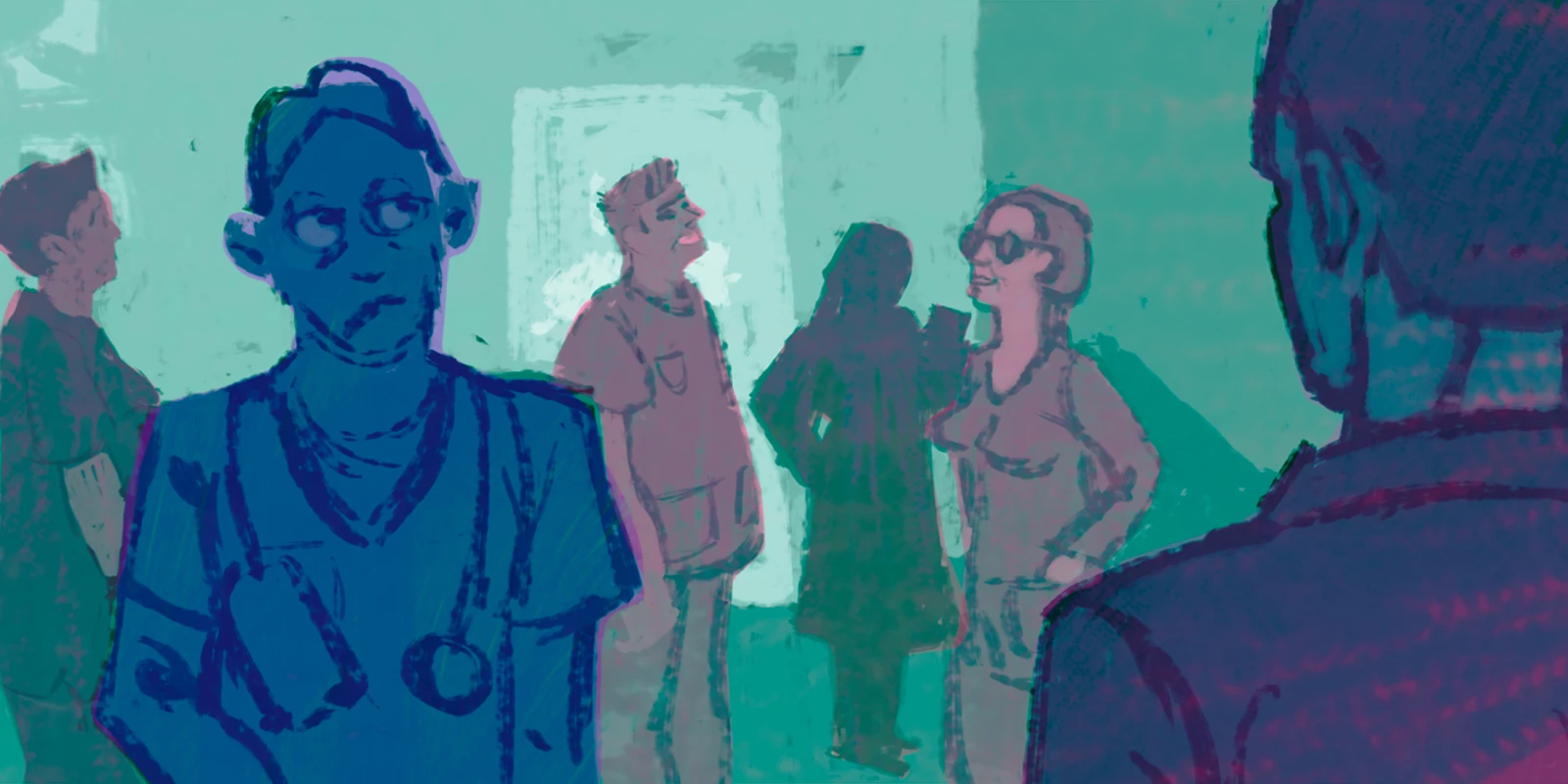My relatively short time as a medical trainee has been riddled with obstacles put in front of me by the very people who, ironically, were the ones positioned to help me; attending physicians, deans, and even my most trusted mentors. As a medical student, my fragile station as a nascent inductee into the medical profession made it especially difficult for me to know how to speak up when I felt mistreated or even if I should speak up at all.
I have numerous examples of being ignored, bullied, and inappropriately criticized not by my peers, but by the faculty support system that surrounded me. How could I, without jeopardizing our relationship, try to get the attention of my research mentor, who, without any excuse, ignored multiple emails about our time-sensitive research project? Who else could I go to even when the dean of medical education did not respond to a formal letter I sent expressing student body concerns that an Islamophobic comment was made during our reproductive ethics lecture? I can only recount some of the many instances when faculty committed behavior that negatively impacted me. In most cases when I felt I had been slighted, I felt no choice but to remain silent or to accept being ignored.
Medical trainees are known to have difficulty speaking up to their residents or attendings in situations where they are subject or witness to unprofessional behavior. Fear of repercussions, injury to invaluable professional relationships, or being accused of self-victimization are some of the many complex and layered reasons I did not speak up at times I had been perhaps unintentionally disrespected or blatantly mistreated. To be a medical student is to live in a demoralizing state, needing to appease the superiors on whom their success relies, even if that includes accepting mistreatment from those superiors.Their standing is precarious; they are almost, but not quite yet, physicians with a medical degree. Their spot in residency has not yet been secured. Minds spin in a constant flurry of worrying about grades, clerkship evaluations, and recommendation letters. With this mindset, maintaining pristine relationships with evaluators, supervisors, and administrators, who play pivotal roles in the residency application process, is of utmost importance.
I fearfully grappled with how deep into the labyrinth of medical hierarchy I should venture to express my concerns to a sympathetic ear that could also help me enact the change I sought. If the dean ignored me, should I escalate my concerns to someone even higher? If my own mentor would not listen to me, should I enlist another faculty member’s help? The nature of the mistreatment also warrants consideration; perhaps not every act of unprofessionalism demands speaking up against. We must, after all, choose our battles. But even when grossly unacceptable acts of racism are on display, medical students may still choose silence for fear of reprisal.
To the detriment of medical students’ well-being, existing at the lowest rung of the hierarchy of medical training does not naturally invite giving unsolicited feedback or frank criticism to one’s superiors. In an ideal medical system, we would all feel comfortable sharing our negative experiences and how to move forward from them through honest, informal conversation while still preserving our relationships with our superiors. Medical students should not have to live in fear of retaliation or tarnishing their relationships simply for speaking up for themselves and defending their right for mutual respect. In fact, institutions should create environments that encourage constructive and critical feedback of their faculty and administrators through a formal, non-judgmental identified or de-identified process, per student preference.
Now as a resident who is one rung higher, I wonder how much has changed in how I consider speaking up for myself. The hovering tension of speaking up to superiors will always remain because, in truth, it is unnervingly bold to express criticisms of those whom you will have to work with for years and would likely be offended by your honest assessment of them. In remaining silent as a medical student, I suffered the most. As trainees, we accept suffering so that we can survive. But something has shifted in me, even if only infinitesimally so. Perhaps I could accept my own suffering, but can I condone my silence if it affects not me, but others? Who else will be negatively impacted by this person after me, and might my speaking up prevent that? I am no longer a medical student, but instead work with them. Even the micro-injustices I allow to go unchallenged will be the same ones my medical students inherit when they become residents. I hope for a culture of medical training where we can be uncomfortably honest about the uncomfortable with all levels of trained clinicians. As I move upward in my own training, leading a larger and larger team as I go, I hope that in these moments of tension, I will lead by example and be strong enough to raise my voice, if not for my own sake, then for the sake of others.
Did you find yourself silenced during your training? How are you speaking up for the next generation? Share in the comments.
Sara is a Los Angeles native in her first year of pediatrics training at Seattle Children's Hospital in Seattle, WA. She enjoys reading, hiking, taco trucks, chai, and her cat, Tibby. She is a 2020–2021 Doximity Op-Med Fellow.
Illustration by Jennifer Bogartz







